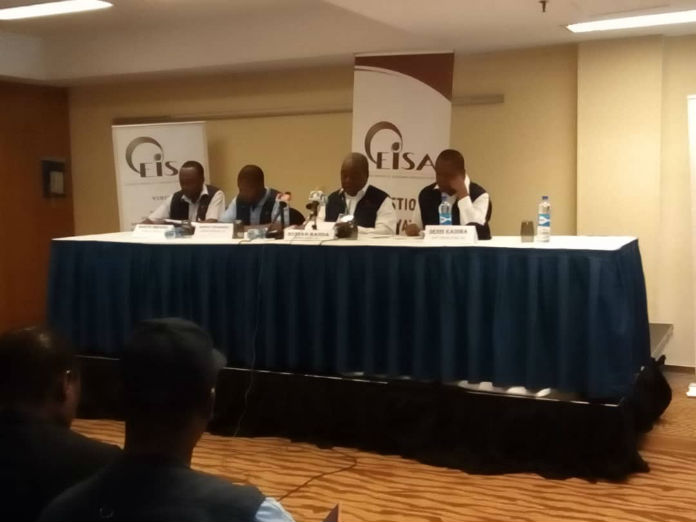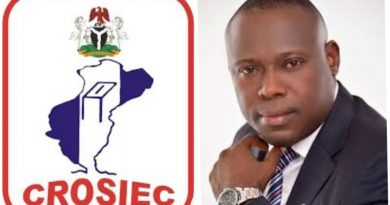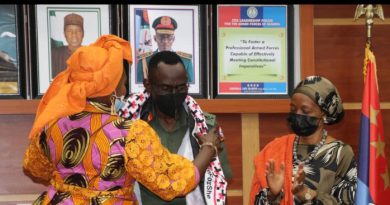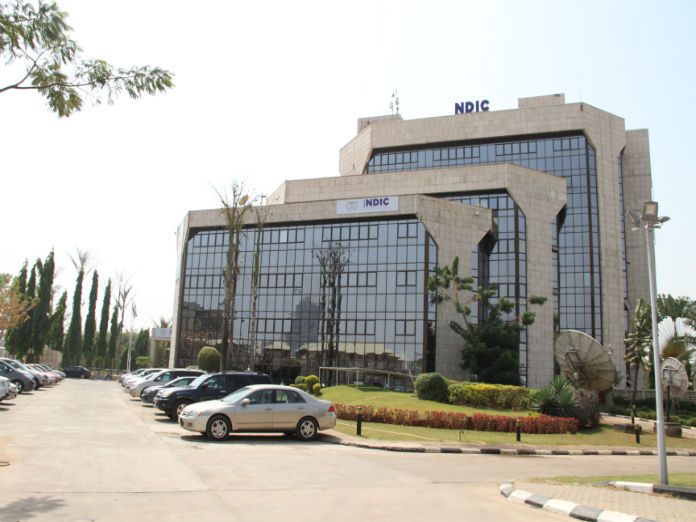The EISA EOM Urges Nigerians To Remain Peaceful Throughout The Elections
The Electoral Institute for Sustainable Democracy in Africa (EISA), Election Observing Mission (EOM), has applauded Nigerians for their commitment and resilience during the last presidential and national assembly pools.
Briefing Journalists in Abuja on Monday, 25 February 2019, the EISA EOM led by His Excellency Rupiah Banda, former President of Zambia, said that the organisation recognised the fact that the process is yet to be concluded, with the results collation for the presidential and national assembly elections still ongoing as at time of briefing the press, the EISA EOM refrained from making a conclusion.
“This is a preliminary statement of the EISA mission’s assessment up until the end of polling. A final report of the EOM’s overall assessment of the presidential and national assembly elections will be issued in a few months” he said
Reading through the report His Excellency Rupiah Banda stated “The EISA EOM appreciates the efforts of the polling officials to deliver their duties with the limited facilities available and within challenging working conditions. The EISA EOM observed that members of the NYSC recruited as ad hoc staff and police officials on election duty were not provided meals in the course of the day, yet they worked tirelessly into late hours of the day. In some cases, the young officials worked until the morning of 24 February.
The EISA EOM also noted that the officials were not provided adequate security whilst transporting sensitive election materials and that the staff did not demonstrate that they had been adequately trained.
On involvement of the youths EISA EOM said, “The 2019 elections saw greater participation of the youth who benefited from the Constitutional Amendment, popularly referred as ‘Not Too Young to Run’ Bill, that amended constitutional provisions on age the limit for presidential candidates from 40 to 35 years, the age limit for membership of House of Assembly is reduced from 30 to 25 years; while the age limit for membership of the senatorial candidates remains 35 years. Following these amendments, the number of youth contesting for elective positions has increased from 18% in the 2015 for House of Representatives election to 27.4% in the 2019; 9.8% of those vying for gubernatorial position in 29 States are youth and 14% of presidential candidates are between the aged of 35- 40 years.”
On Inclusivity the EISA EOM cited “Article 9(1b) of the Protocol to the African Charter on Human and People’s Rights on the Rights of Women in Africa promotes equal rights to participation in the political life of African countries through affirmative action.
Women continue to be marginalised within political party structures and in general political and electoral processes in Nigeria. Nigeria ranks 181 out of 193 in the global Women in Parliaments ranking with only 5% women representation in its outgoing National Assembly.
The mission notes that the gender and equal opportunities bill aimed at bringing domestic laws in line with Nigeria’s international commitments has been tabled before the seventh and eighth National Assemblies. This has however not been passed, dealing a blow to affirmative action efforts. In the 2019 presidential and national assembly elections, only 897 women are contesting for various elective positions out of the total of over 23,0009 candidates translating to about 11%. For the 2019 National Assembly elections, there are 1,645 male and 232 female candidates, vying for 109 senatorial seats; while 4,086 male and 542 female candidates are contesting for 360 House of Representatives seats. Only six (6) of the 73 presidential candidates are women translating to 8.2%. Only 21 out of 73 candidates (29%) vying for the position of vice president are women. The low number of women contesting for the listed positions clearly indicates that the representation of women in the next political dispensation will remain minimal.
The EISA EOM notes that Nigeria as a State Party to the Convention on the Elimination of all forms of Discrimination Against Women and the Protocol to the African Charter on Human and People’s Rights on the Rights of Women has not done much to create enabling conditions for women to run for office.
The Federal Republic of Nigeria has enacted a legislation to prohibit discrimination of people living with disability (PLWDs) by signing into law the Discrimination against Persons with Disability (Prohibition) Act, 2019.
The EISA EOM also notes the introduction of the INEC Framework on Access and Participation of Persons with Disabilities in the Electoral Process.
This is a positive step towards encouraging the inclusivity and participation of PLWD. However, the mission notes the minimal representation of PLWDs in various elective and appointive positions. Actualisation of the aspirations embodied in the legislative framework requires further concerted efforts.
Since the 2015 elections, there has been an increase in the number of internally displace persons (IDPs) resulting from violent communal conflicts, activities of Boko Haram and natural disasters. In comparison to the number of IDPs that INEC had to plan for in 2015, in 2019, the IDPs are spread across states in North Eastern Nigeria.
The EISA EOM notes the effort made by INEC to create Polling Units within IDPs camps to ensure that IDPs are not left out.
The Electoral Institute for Sustainable Democracy in Africa (EISA) deployed an Election Observation Mission (EOM) to the 2019 general elections in Nigeria.
The EISA EOM is led by His Excellency Rupiah Banda, former President of Zambia, with Mr. Denis Kadima is EISA’s Executive Director as the Deputy Mission Leader. It is comprised of 16 observers drawn from civil society groups and election management bodies from 13 African countries.
The EISA EOM said that the deployment of the EISA EOM was preceded by a pre-election assessment mission in January 2019. Members of the EOM began arriving in the country on 6 February 2019 and will depart on 26 February 2019.
To gain further insights on the context of the elections, the mission engaged with key stakeholders such as the Independent National Elections Commission (INEC), the National Broadcasting Commission of Nigeria, national civil society organisations (CSOs) particularly citizen election observer organisations, political parties, academics, legal experts and heads of other international observer missions present in Nigeria. Prior to their deployment to eight States,
Observers were trained on EISA’s election observation methodology. EISA’s election observation methodology is aligned with the principles set out in the Declaration of Principles for International Election Observation and the Code of Conduct for International Election Observers.
In their areas of deployment, EISA observers witnessed the final phase of the campaigning, interacted with local stakeholders, and observed the delivery and receipt of materials at the INEC offices and at polling units. Following the postponement of the elections a few hours before the opening of the polls, EISA observers remained in their areas of deployment to observe the implementation of INEC’s new operational plan, including the retrieval of sensitive materials, as announced by the INEC Chairman in his press release of 16 February 2019.
The EISA EOM notes that the electoral system adopted in Nigeria largely guarantees the right to stand. However, restriction of candidature to persons sponsored by parties, impinges on this right. The electoral system adequately addresses the country’s historical and political peculiarities and seeks to guard against politics driven by ethno-religious and regional sentiments.
It recognised that the procedures for registration of political parties in Nigeria largely guarantees the freedom of association, of which Ninety – one (91), political parties were registered by INEC for the 2019 elections.
The EISA EOM takes note of the rocky party primaries that ended in disputed outcomes within some parties. These outcomes led to court cases that ended with the disqualification of some candidates and creation of splinter groups from some parties. This is an indication of inadequate democratic culture within such political parties.
Out of the 73, only two parties (PDP and APC) have nationwide outreach and presence. The two parties are also the major contenders in the 2019 general elections; with great influence on presidential, national assembly and state elections. Their influence is largely informed by their financial resources. In that regard political parties and individuals treat elections and elective positions as commodities to be purchased by the highest bidder. The existing laws do not regulate the campaign expenditures of the individual candidates who are contesting elections. However, the laws require INEC to exercise control over political campaign expenditures. The Constitutional and other legal provisions envisage that every political party maintains proper accounts of its funds. This sentiment explains the misconduct of political candidates and parties involved in voter bribery and vote buying accusation that featured prominently in these elections.
The EISA EOM also noted with concern the use of intimidating language by party leaders, who accused each other of planning to rig the elections after the postponement of the elections.
The National Chairman of APC, at their party caucus held on the 18th February 2018, accused PDP of conniving with the INEC to rig the elections. He went further to say that APC will go against INEC’s direction for parties not to hold campaigns ahead of the rescheduled elections.
The Inter-Party Advisory Committee (IPAC) which is supposed to be a multi-party dialogue platform has been inactive since the IPAC elections that led to controversial outcomes. With the increase in number of registered parties, the EISA EOM is of the view that the IPAC is an important platform for effective communication amongst and between the political parties and INEC and should be revived.
The EISA EOM commended the National Peace Committee for facilitating the signing of the Peace Accord by the presidential candidates. By signing the Peace Accord, candidates demonstrated their commitment to the conduct of peaceful elections and called on candidates to continue to live up to their commitments within the framework of the Peace.
The EISA EOM observed that there was no widespread military deployment across the country on election day except in the North East where the threat of terrorism remains high, and also that both international and citizen observers have identified a number of security risks and threats to the 2019 elections which include, banditry, terrorism (Boko Haram), herder-farmer conflicts, Biafra separatists, activities of cults, Niger-Delta militants, political violence and high numbers of internally displaced persons, which could have a bearing on the 2019 elections.
On security agents, the EISA EOM recommended the following:
i. Investigate the incidences of the fire outbreaks s at INEC facilities and account to the public on the cause of the fire
ii. Provide maximum security to INEC facilities across the country from registration areas to the INEC headquarters.
iii. Provide maximum security for elections materials in transit
iv. Train security officers on their role in crowd control and make them aware of the place within the setup of the polling unit and avoid being intrusive.
v. Investigate incidents of violence reported on election day and bring perpetrators to book
Recommendations to INEC include:
i. Provide for the welfare of polling official and ad hoc staff before and during the election day.
ii. Conduct refresher training of all the elections staff to ensure that the staff can conduct
the exercise in accordance with the required regulations with confidence.
iii.Provide demarcation tape for polling officials to clearly mark out the perimeter of voting points for crowd control
iv. Make adequate arrangements to mark and setup the voting points in good time before the opening of the polls.
v. Provide copies of training manuals to all polling units for easy reference
vi.Introduce a process of sorting ballots before counting in a systematic way
vii. Train queue controllers in all polling units to contribute to orderliness of the
process
“Cognisant of the fact the process is yet to be concluded, with the results collation for the presidential and national assembly elections still ongoing, the EISA EOM refrains from making a conclusion at this point. The EISA EOM commends Nigerians for their commitment
and resilience and encourages them to remain peaceful throughout the final stages of the process” the EISA EOM concluded.




